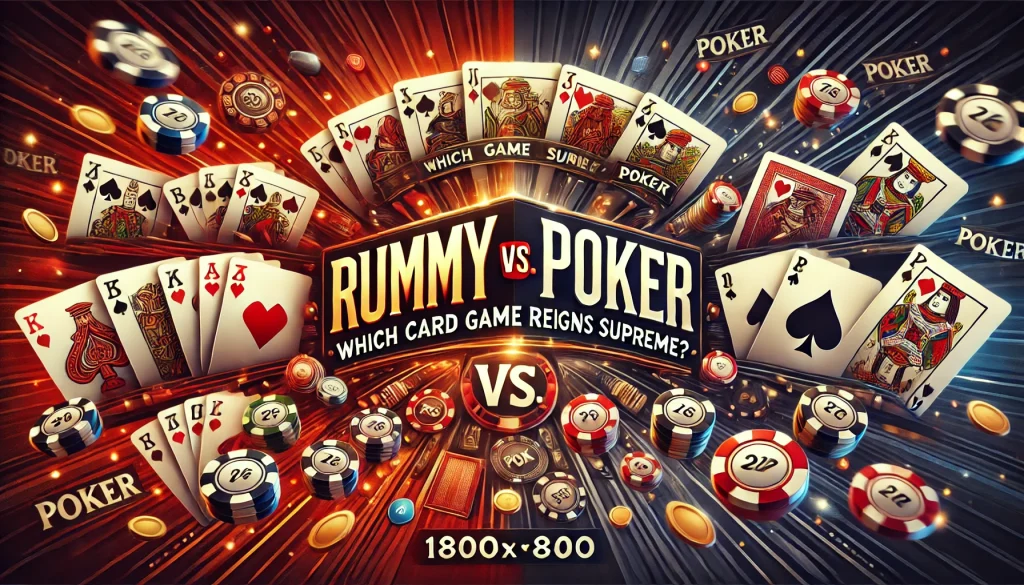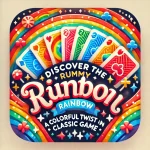Description

Across all cultures, card rummy culture games have long been a mainstay of entertainment, social interaction, and rivalry. Two of the most well-liked & frequently played card games among the many others are rummy & poker. Every game has a unique history, set of rules, & strategy that appeals to a 777 slots variety of players. Rummy provides a simpler strategy that frequently draws families and casual players due to its emphasis on creating sets and runs.
Poker, on the other hand, is well known for its psychological components and strategic depth, which makes it a favorite among gamblers and competitive players, especially in its variants like Texas Hold’em and Omaha. Rummy’s roots are in the Mexican game of Conquian, which dates back to the early 1800s. It developed into several variations over time, such as Indian Rummy & Classic 777 Slots APK Gin Rummy, each with its own subtleties and set of rules.
Contrarily, poker has a more complicated history, thought to have developed from a number of 17th-century games, such as the Persian game As-Nas. The game became extremely popular in the United States in the 19th century, and it has since spread throughout the world, particularly with the rise of online poker sites. In addition to being entertaining, both games offer a prism through which to examine social interaction, strategy, and human psychology. Overview of the Gameplay. Two to six players can participate in the game, which usually uses a standard 52-card deck. The number of cards dealt to each player varies depending on the variant being played, typically seven or ten.
One card is positioned face-up to begin the discard pile, and the other cards form a draw pile. The players alternately draw a card from the discard pile or the draw pile, then discard one card from their hand. winning the match. The game goes on until a player reaches a set score limit or successfully melds all of their cards.
Rummy’s scoring system can vary, but in certain iterations, players score points according to the cards that remain in their opponents’ hands after one player leaves. Face cards, for example, are worth ten points each, but numbered cards keep their face value. Score and Strategy. Players must balance their own progress toward melding while monitoring the possible moves of their opponents, which adds another level of strategy to this scoring system. Gamers can improve their chances of winning the game by keeping an eye on the cards that have been discarded and using that information to decide which cards to keep and which to discard.
Poker is one of the most captivating card games in the world because it blends strategy, skill, & luck. Each player receives two private cards, also referred to as hole cards, and five community cards, which are shared by all players in the most common variation, Texas Hold’em. Making the best five-card hand out of any combination of the seven available cards is the goal. Poker hand rankings, which go from high card (the weakest) to royal flush (the strongest), are essential to gameplay.
Based on their level of confidence in their hand, players can check, wager, raise, or fold during the game’s multiple betting rounds. After the hole cards are dealt, there is a betting round before the flop, or three community cards, are revealed. A fourth community card, the turn, is revealed after another betting round, and then a fifth community card, the river, is revealed. Should there be more than one player left, players then reveal their hands in a showdown. The player who has the best hand wins the pot.
Deeply ingrained in poker strategy, players must read their opponents’ betting patterns and actions in addition to their own hands in order to make wise choices. Even though Rummy might appear simple at first, mastering it takes a great deal of skill & strategic thinking. Keeping track of which cards have been discarded and which are still in play is a crucial component of card management. Because of this awareness, players are able to predict possible moves from their opponents and modify their tactics accordingly. For example, it may be advantageous to keep a card until it is strategically advantageous to discard it if a player discards one that another player is likely to need for a meld.
The idea of “going out” is another crucial rummy strategy. By combining all of their cards & reducing the number of points in their opponents’ hands, players must determine when to stop the game. This choice frequently comes down to weighing risk & reward; if you leave it too soon, your opponents may have high-point cards, but if you wait too long, they may be able to meld first. Rummy players may also engage in bluffing, which involves deceiving their opponents about their true intentions by discarding some cards or keeping others longer than is necessary.
Poker is frequently characterized as a game of incomplete information in which, in addition to mathematical strategy, psychological warfare is crucial. Understanding pot odds, or the ratio of the pot’s current size to the size of the bet you must call, is one of the most important poker skills. Using this mathematical idea, players can assess a call’s long-term profitability by looking at its likelihood of producing a winning hand.
Bluffing is yet another crucial poker tactic that has the power to change the outcome of a match. When a bluff is timed correctly, opponents may fold better hands, giving a player with weaker cards the opportunity to win the pot. But effective bluffing necessitates knowledge of opponents’ betting patterns and tendencies; players must predict when their opponents will fold or call based on past game actions. Also, interpreting facial expressions & body language—often referred to as “tells”—can reveal important information about an opponent’s degree of poker confidence.
Rummy is one of the most popular card games in the world, with a following that crosses borders and cultural boundaries. Its popularity is due in part to its accessibility; players of all ages can enjoy it because the rules are not too difficult to understand. During holidays or other special occasions, families frequently get together around tables to play friendly Rummy, strengthening their bonds & making enduring memories. In terms of culture, rummy has been incorporated into a variety of media and entertainment. As a representation of leisure and companionship, it has appeared in movies, TV series, and books. For instance, Rummy has come to be associated with social events and festivals in India.
Online platforms that are tailored to Indian players who want to play Rummy online have also surfaced. Due to the game’s versatility, many variations have been created that represent regional tastes and customs, further establishing its standing as a popular past time worldwide. Poker has a significant & varied cultural influence that goes beyond simple play to become ingrained in popular culture. With the advent of televised poker tournaments in the early 2000s, the game was brought into people’s living rooms all over the world, where viewers were enthralled by the high stakes competitions.
Amateur players have become overnight celebrities thanks to events like the World Series of Poker (WSOP), which has increased interest in the game. Also, poker has come to represent risk-taking and gambling culture. Innumerable works of literature, film, & television that examine chance, strategy, & human psychology have been influenced by it. Classic movies like “Casino Royale” and “Rounders” have romanticized the life of a professional poker player while emphasizing the inherent conflict between skill and luck in the game.
Millions of people play poker online or on mobile devices these days, transforming the way people interact with the game and fostering a global community that exchanges tactics and insights. When comparing Rummy and Poker, personal tastes & playing styles ultimately determine which card game is best. Those who prefer simple games that prioritize social interaction and pattern recognition will find rummy appealing. It is a great option for informal events where enjoyment takes precedence over competition because it is family-friendly. On the other hand, poker draws people who enjoy strategy, manipulation of the mind, and competitive high stakes.
Serious players looking to prove themselves against others may find the depth of skill needed to master poker to be both rewarding and difficult. Poker offers a complex world full of strategy & psychological depth, while Rummy offers a simple introduction to card gaming. In essence, both games offer distinctive experiences that appeal to different audiences.
Whether someone prefers the intricacy of poker or the simplicity of rummy may ultimately depend more on personal preferences than on an impartial assessment of which of these two classic card games is better.lottery sambad old


